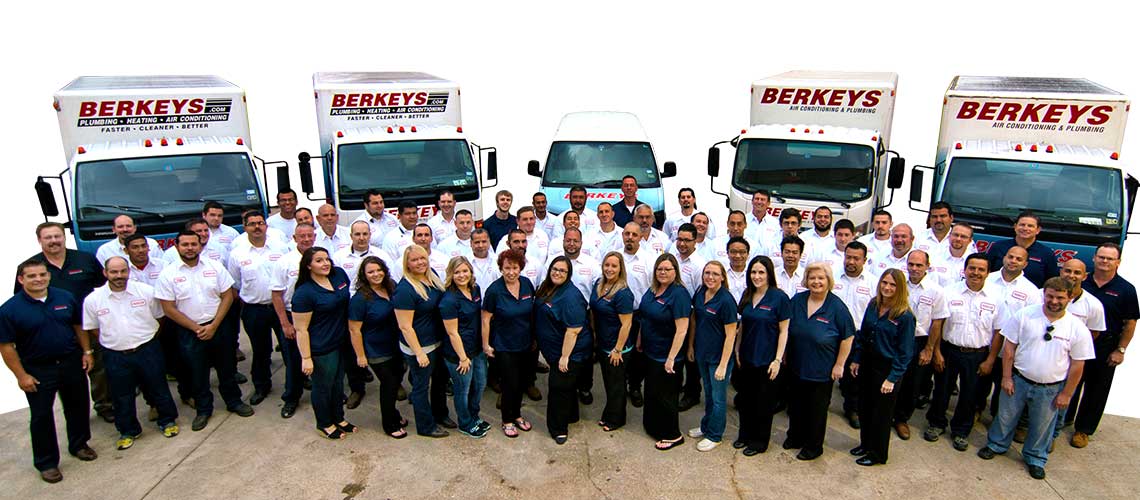The R-22 Refrigerant Phase-Out: What You Need to Know
Julia Clem
Have you ever wondered exactly how your air conditioner produces that gloriously chilly air in the middle of even the hottest, most humid summer days? The entire process is a little complex, but the short version is that a chemical called a refrigerant (you’ve probably heard it referred to as Freon or R-22) pulls heat from the air inside your home, gradually bringing the temperature in line with your thermostat setting.
While there are lots of mechanical parts that help the process along, the refrigerant is arguably the most important ingredient. Your air conditioner can technically run without refrigerant, but doing so can damage the system. You’d need to call a local HVAC company to get it cooling again.
Unfortunately, refrigerants have a checkered past. In fact, as a class of chemicals, they’re pretty bad for the environment. For that reason, the United States Environmental Protection Agency (EPA) has been phasing out the use and manufacture of R-22 (and other harmful chemicals) for many years.
Curious about what this means for your home’s HVAC system? Keep reading to find out!
What Is Air Conditioner Refrigerant Anyway?
Refrigerants are chemical substances that can quickly change between liquid and gaseous states. This makes them perfect for air conditioners because the process of cooling air involves condensing a refrigerant in gas form into a liquid.
That condensed liquid pulls the heat out of the warm air entering the system, which is what produces the cold air you feel when you stand in front of a window air conditioner or a supply vent in your house.
Needless to say, we’d all be a little less comfortable during the summer without air conditioner refrigerant.
Why Is There a Freon Ban?
Good question! After all, if refrigerants are so important, why are we getting rid of them?
The short answer is that while they make our lives more comfortable, most refrigerants—specifically, chlorofluorocarbons (CFC) and hydrochlorofluorocarbons (HCFC), both of which are forms of Freon—contribute to global warming conditions and the depletion of our planet’s ozone layer.
Both CFC and HCFC refrigerants contain the element chlorine, which destroys the molecules in the ozone layer. Ozone molecules are created by a natural process that occurs in the Earth’s stratosphere, but that process isn’t very fast. In fact, our use of refrigerants containing chlorine has meant that we’ve destroyed ozone at a faster rate than the planet can create it.
The ozone layer is vital to Earth being safe for life on the ground, so the EPA is phasing out and eventually banning the manufacture and sale of CFC and HCFC refrigerants to halt further ozone destruction.
How Does the Freon Ban Affect Me?
The answer to that question depends on which of the following groups you fall into:
- Homeowners with air conditioners manufactured and installed prior to 2010.
- Homeowners with air conditioners manufactured and installed after 2010.
If you fall into the second group, you probably don’t have anything to worry about. Air conditioners that use R-22 haven’t been manufactured since December 31, 2009, so if your air conditioner is relatively new, it uses an EPA-approved alternative refrigerant.
If, however, your air conditioner was manufactured and installed before 2010, you may run into some problems as your system ages.
Here’s what you need to know:
- R-22 production will stop completely in 2020, which means that it will become hard to find. Because of supply and demand, an A/C recharge might cost more than it used to.
- If your air conditioning system develops a refrigerant leak, your HVAC technician can recharge your A/C unit with R-22 as long as supplies are available (including supplies of recycled R-22).
- You don’t have to replace your older air conditioner if it’s working well.
- A/C units that use R-22 cannot be retrofitted to use an EPA-approved refrigerant (likely R-410A). Your best, most cost-effective option is to replace the old unit.
Is There a Freon Replacement?
Yes! The best Freon replacement we have today is a refrigerant called R-410A. It isn’t perfect, but it does not contain ozone-depleting chlorine. This new class of refrigerants has made it possible for air conditioner manufacturers to increase the efficiency of A/C units, which is good for our planet and your bank account.
R-410A does, however, have the ability to contribute to global warming effects, so it should only be handled by experienced HVAC technicians. A/C unit installation and recharging isn’t a DIY task.
The Bottom Line
The Freon ban might increase your A/C maintenance costs if you have an older air conditioning unit, but as a whole, the benefits of getting rid of R-22 far outweigh the negatives. New air conditioners that use R-410A are more efficient than their older counterparts, and they don’t harm our ozone layer.
Whether your air conditioner is brand-new or approaching the end of its lifespan, regular maintenance by an experienced, qualified professional is the best thing you can do to keep it in good shape for longer. And remember: Your local HVAC technician is your best resource for everything from safely handling refrigerant leaks to shopping for a new air conditioner.
Julia Clem is part of the marketing team at Best Pick Reports. Best Pick Reports utilizes consumer satisfaction research to evaluate the performance of home service providers, such as plumbers, roofers, and painters, in metro areas across the US. After compiling surveys from thousands of homeowners who have had direct experience with local service companies, Best Pick Reports connects top-rated companies with their ideal customers by promoting them in its annual publication, website, and mobile app. Berkeys Air Conditioning, Plumbing & Electrical has been a Best Pick company since 2014.
